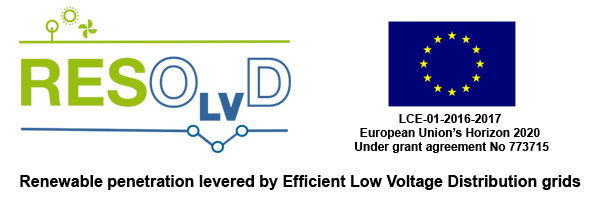University of Girona: Forecasting algorithms: from evaluation to implementation
Generation and demand forecasting is necessary for an efficient management of energy systems. In particular, in the RESOLVD project it is intended for supporting the detection of future critical events in the grid (e.g. congestions or voltage limits violations) and to provide the required information for scheduling storage and switching elements in the grid with an aim of avoiding such events or more operating the grid more efficiently.
University of Girona has been in charge of developing the forecasting modules designed according to the requirements of the relevant use cases (PUC1 – Energy Forecaster and PUC2 – Critical Event forecaster) reported in the D.1.3 Interoperability and integration analysis and requirements of the project, dealing with both demand and generation forecasting as well as the forecasting critical situation for the operation of the grid.
Generation forecasting – which is focused on PV production since the project considers only this kind of renewable generation in the validation environment – put its basis on a simplified which leverages irradiance forecasting methods. The problem is reduced to applying basic concepts on PV panel operation used for generation, whilst utilizing forecasting of the solar irradiance at a given place.
The critical event forecaster, exploit results of load and generation forecasting to detect possible congestions or under/over voltages in the grid. Generation and demand forecasted at prosumer level has to be propagated through the grid to infer values of voltage at buses and current at lines to evaluate the possibility of these critical events (critical event forecasting).

Forecasting examples at bus level with a time horizon of 1h.




